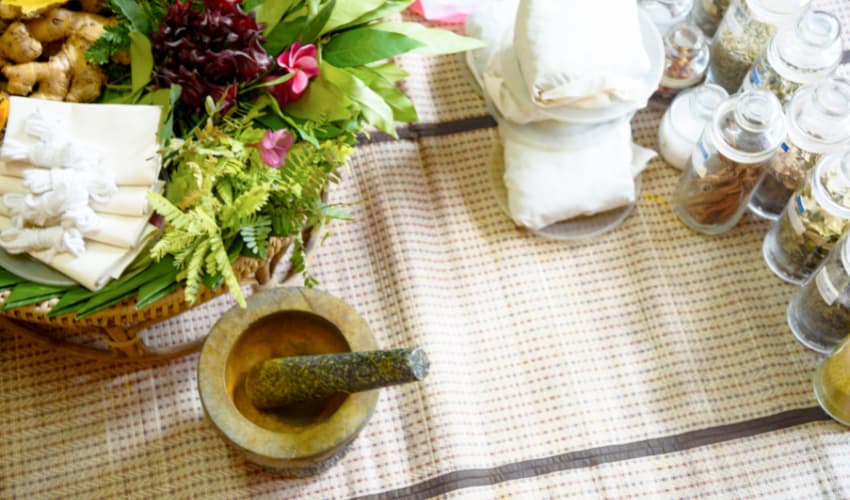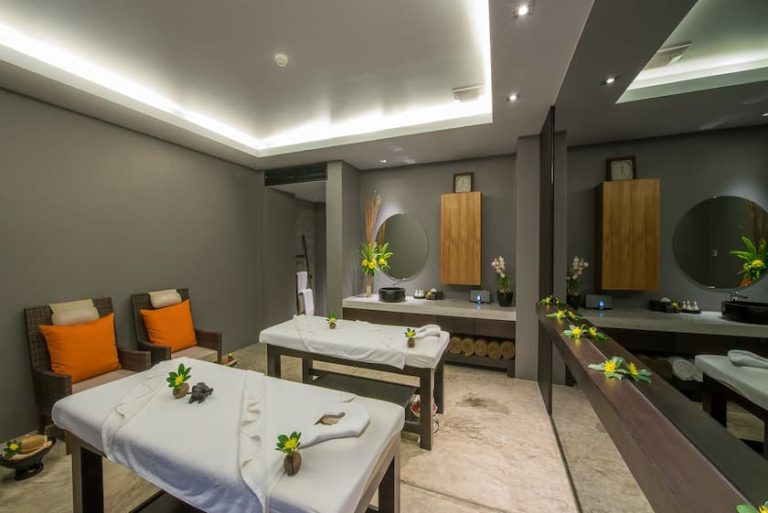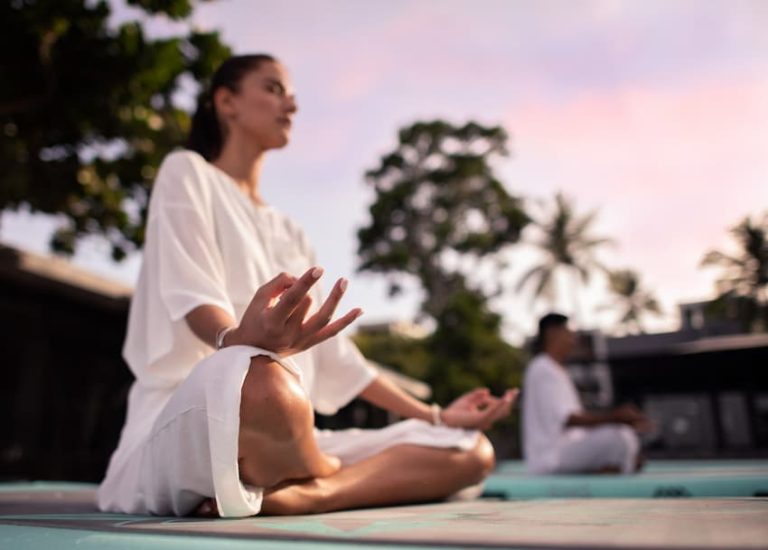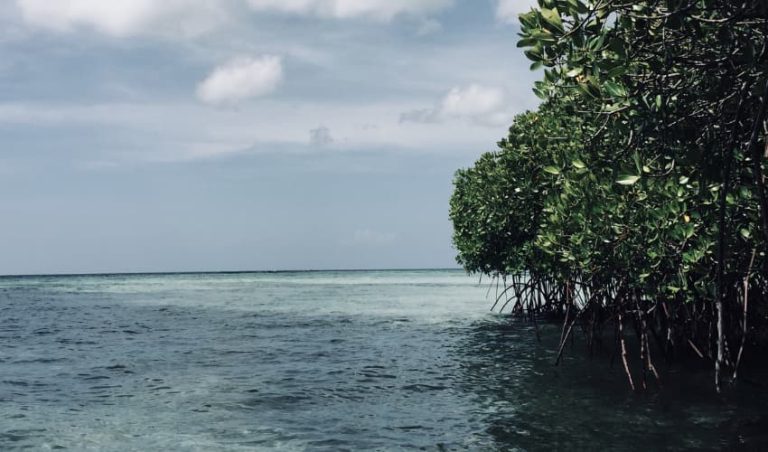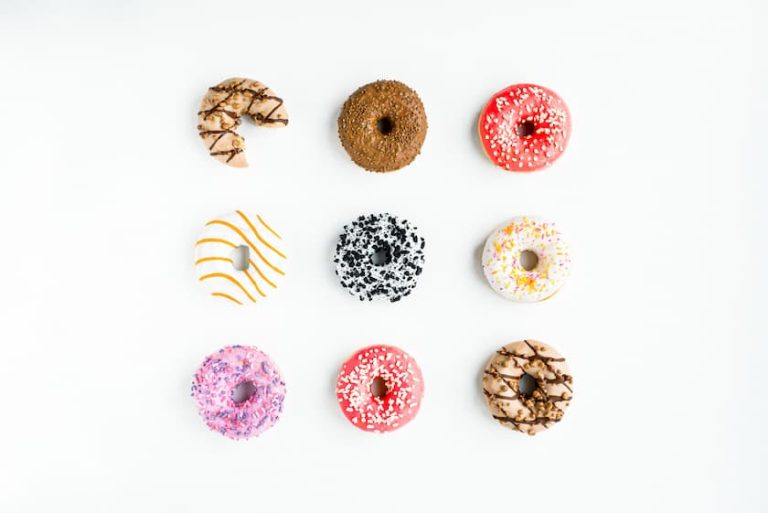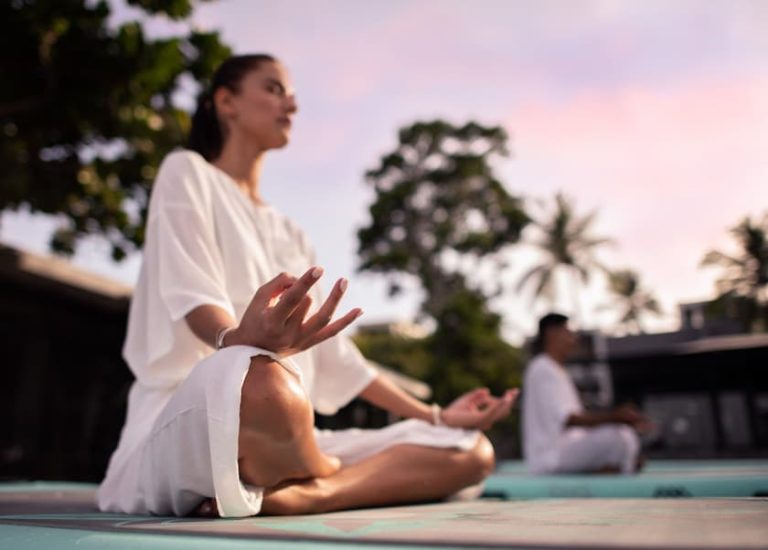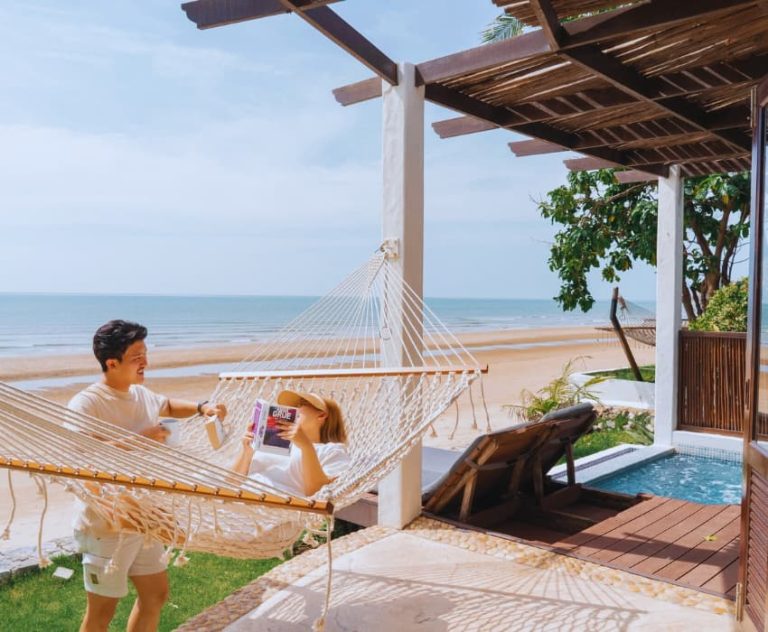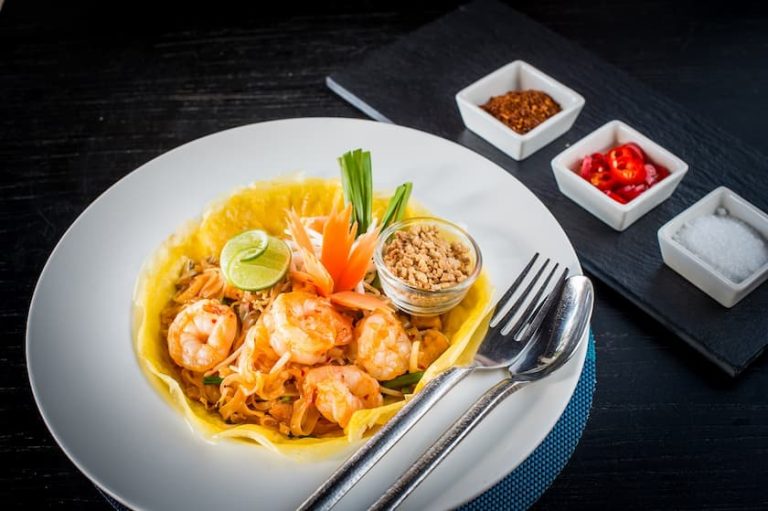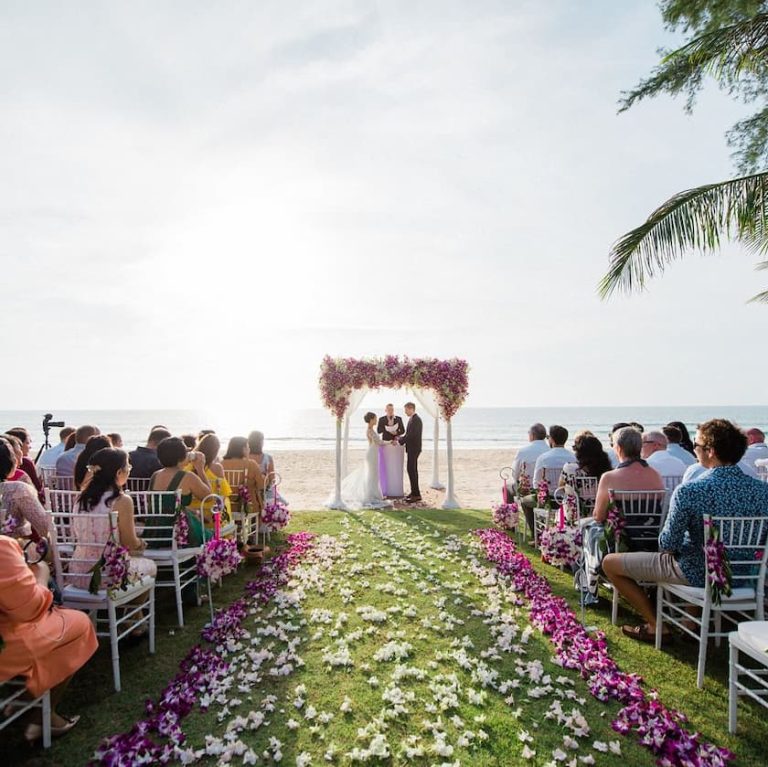Ayurveda is a system of traditional medicine that originated in India more than 3,000 years ago. It is based on the belief that health and wellness depend on a delicate balance between the mind, body, and spirit. Ayurvedic principles are an integral part of traditional Thai massage.
Some of the Ayurvedic principles that are incorporated into traditional Thai massage:
- Tridosha: The concept of tridosha, or the three doshas, is central to Ayurveda. The doshas are fundamental energies that govern the body and mind. They are Vata (air), Pitta (fire), and Kapha (water). Traditional Thai massage can help to balance these doshas and promote overall health and wellness.
- Marma Points: Marma points are specific points on the body that are connected to the flow of energy in the body. In Thai massage, pressure is applied to these points to release blocked energy and promote balance.
- Prana: Prana is the vital energy that flows through the body. In Thai massage, prana is stimulated by the therapist’s touch, which helps to release tension and promote overall health and well-being.
- Chakras: Chakras are the energy centres in the body that are connected to the flow of prana. In Thai massage, the therapist may focus on specific chakras to release blocked energy and promote balance.
- Vayus: Vayus are the five types of prana that flow through the body. In Thai massage, the therapist may focus on specific vayus to release blocked energy and promote balance.
- Abhyanga: Abhyanga is the Ayurvedic practice of self-massage. It is a technique used in traditional Thai massage that involves the therapist applying warm herbal oil to the client’s body. The oil nourishes the skin and improves the energy flow throughout the body, helping to release tension and promote overall health and well-being.
- Panchakarma: Panchakarma is a set of five purification therapies used in Ayurveda to cleanse and detoxify the body. Some Thai massage practitioners may incorporate Panchakarma techniques into their sessions to help release toxins and promote overall health and well-being.
- Yoga: Yoga is a complementary practice to Thai massage; both practices are designed to balance the body, mind and spirit. Thai massage incorporates yoga postures and stretches that help increases flexibility, balance, and range of motion and release tension.
These principles are used in traditional Thai massage to balance the body, mind and spirit, improve overall health and well-being, and promote relaxation and stress relief.
Ayurvedic Principles
Tridosha
Tridosha refers to the three doshas, the fundamental energies that govern the body and mind. They are Vata (air), Pitta (fire), and Kapha (water).
Vata is associated with movement and governs the nervous system, circulation, and respiration. An imbalance in Vata can cause anxiety, insomnia, and constipation.
Pitta is associated with metabolism and governs the digestive system, hormones, and skin. An imbalance in Pitta can cause acid reflux, skin rashes, and anger.
Kapha is associated with structure and governs the immune system, joints, and lungs. An imbalance in Kapha can cause sinus congestion, weight gain, and lethargy.
Traditional Thai massage uses different techniques to balance the doshas. They may use slow, flowing strokes to balance Vata, deep pressure to balance Pitta, and gentle rocking motions to balance Kapha.
Marma Points
Marma points are connected to the flow of energy in the body.
Marma points are found in various body parts, such as the head, face, chest, and limbs. In Thai massage, the therapist applies pressure to these points using their hands, feet, knees, elbows, and sometimes a wooden stick. This helps to release blocked energy and promote balance in the body’s energy flow.
Marma points have therapeutic effects on the body’s systems, such as the immune, respiratory, and nervous systems. They are also considered to positively impact emotional and mental well-being, helping to relieve stress and anxiety.
Oil is used to massage these points, to help to relax the mind and body, improve blood circulation and nourish the skin.
Prana
Prana is the vital energy that flows through the body. It is the life force that animates the body and mind.
In Thai massage, the therapist stimulates the flow of prana through their touch, which helps to release tension and promote overall health and well-being. Thai massage is designed to balance the body’s energy and remove any blockages in the flow of prana.
Different massage techniques are used to stimulate the flow of prana, such as pressing, kneading, rocking, and stretching. These techniques help to release tension, improve circulation, and balance the body’s energy.
Chakras
Chakras are energy centres in the body that are connected to the flow of energy in the body. They are considered the gatekeepers of energy pathways and are located along the spine, from the base to the crown of the head.
Each chakra corresponds to a specific area of the body and is associated with different physical, emotional, and spiritual aspects of the body. Imbalances in the chakras can manifest as physical, emotional or mental issues.
In Thai massage, different techniques such as pressing, kneading, rocking and stretching balance the chakras and promote energy flow. The therapist may also use specific essential oils to balance the chakras and promote healing.
Vayus
Vayus are the five vital energies that govern the body and mind. They are Prana Vayu, Apana Vayu, Samana Vayu, Udana Vayu, and Vyana Vayu.
- Prana Vayu governs the body’s breath, circulation, and energy flow. It is associated with the head and chest.
- Apana Vayu governs the elimination of waste and toxins from the body and is associated with the lower abdomen and pelvic area.
- Samana Vayu governs digestion and metabolism and is associated with the navel area.
- Udana Vayu governs speech and communication and is associated with the throat and chest.
- Vyana Vayu governs circulation and movement and is associated with the entire body.
In Thai massage, the therapist uses pressing, kneading and rocking techniques to promote energy flow through them. The therapist may also use specific essential oils to balance the vayus and promote healing.
Abhyanga
Abhyanga is an Ayurvedic practice of self-massage with warm herbal oils that are typically done before bathing. The oil is massaged into the skin, focusing on the marma points, and then left on for some time before bathing. This nourishes and strengthens the skin, improves circulation, and promotes overall well-being.
A Thai massage is a form of bodywork typically done on a mat on the floor rather than using oils. It focuses on the energy pathways, the marma points and the principle of prana, and it is designed to balance the body’s energy and release any blockages in the flow of prana. Thai massage incorporates elements of yoga, shiatsu, and acupressure, and it is performed with the client fully clothed.
Panchakarma
Panchakarma is a holistic approach to health that aims to remove toxins from the body and bring balance to the body and mind. It includes five main procedures: Vamana (induced vomiting), Virechana (induced purgation), Nasya (nasal administration), Basti (enema) and Raktamokshana (bloodletting).
A Thai massage is a form of bodywork typically done on a mat on the floor rather than using oils. It focuses on the energy pathways, the marma points and the principle of prana, and it is designed to balance the body’s energy and release any blockages in the flow of prana. Thai massage incorporates elements of yoga, shiatsu, and acupressure, and it is performed with the client fully clothed.
<3>Yoga
A Thai massage is a form of bodywork incorporating elements of yoga, shiatsu, and acupressure. It focuses on the energy pathways, the marma points and the principle of prana, and it is designed to balance the body’s energy and release any blockages in the flow of prana.
On the other hand, yoga is a spiritual practice that includes physical postures (asanas), breathing techniques (pranayama), meditation, and ethical principles. Yoga is designed to bring balance and harmony to the body, mind and spirit and to promote self-awareness, relaxation, and well-being.
Ayurvedic FAQs
What is Ayurveda?
Ayurveda is a traditional Indian system of medicine that aims to bring balance and harmony to the body, mind and spirit. It includes herbal remedies, massage, and other therapies to promote health and well-being.
What are the three main principles of Ayurveda?
The three main principles of Ayurveda are Vata, Pitta, and Kapha.
How does Ayurveda determine my dosha?
Ayurveda uses various methods to determine an individual’s dosha, including pulse diagnosis, observation of physical characteristics, and analysis of dietary and lifestyle habits. It’s important to consult with a qualified Ayurvedic practitioner for an accurate diagnosis.
Is it necessary to know my dosha before a Thai massage?
It’s unnecessary, but it can be helpful. Knowing your dosha can help the practitioner to tailor the massage to your individual needs and to use the most appropriate oils and techniques.
What are Ayurvedic principles?
Ayurveda is a traditional Indian system of medicine that aims to bring balance and harmony to the body, mind and spirit. It includes herbal remedies, massage, and other therapies to promote health and well-being. The three main principles of Ayurveda are Vata, Pitta, and Kapha, which govern a person’s physical and mental characteristics.
What are the benefits of Ayurvedic principles?
Ayurveda promotes harmony in the body, mind, and spirit. It is also thought to help alleviate various health concerns, including digestive problems, stress, and chronic pain.
How are Ayurvedic principles used in Thai massage?
Some Thai massage practitioners incorporate Ayurvedic principles, such as the principle of marma points and the dosha, into their massage practice. Marma points are similar to acupressure points and are key to releasing tension and blockages in the body. Tridosha refers to the three energies that govern the body and mind: Vata, Pitta, and Kapha. Practitioners may use different oils and techniques to balance these energies and promote healing.
Ayurah Spa & Wellness Centre’s
Ayurah Spa & Wellness centre offers a mind-balanced, body-rejuvenated journey of well-being. Ayurah Spa is a sanctuary that takes a results-oriented approach to wellness with rejuvenating spa treatments and therapies.
Wellness is a journey, an evolving process of the current condition of the mind, body and spirit. Ayurah Spa looks forward to supporting you in your quest for optimal relaxation, health and wellness.
Locations:
Ayurah Wellness also offers world-class holistic wellness retreats, mindfulness meditation, tailor-made programs, and wellness cuisine.
Related Articles
- Traditional Thai Massage for Your Health and Well-Being
- Holistic Healing in Chiang Mai with Ayurvedic Marma Therapy
- Embracing Wellness with Thai Healing Treatments in Chiang Mai
- Why Try Wellness Retreats in Thailand
- Vipassana Meditation: A Journey to Inner Peace
Aleenta Retreat
Chiang Mai
Chiang Mai
189 Soi Ban Mai Lang Mo 18,
Suthep, Muang Chiang Mai District,
Chiang Mai 50200
T: +66 (0)52 090 333

